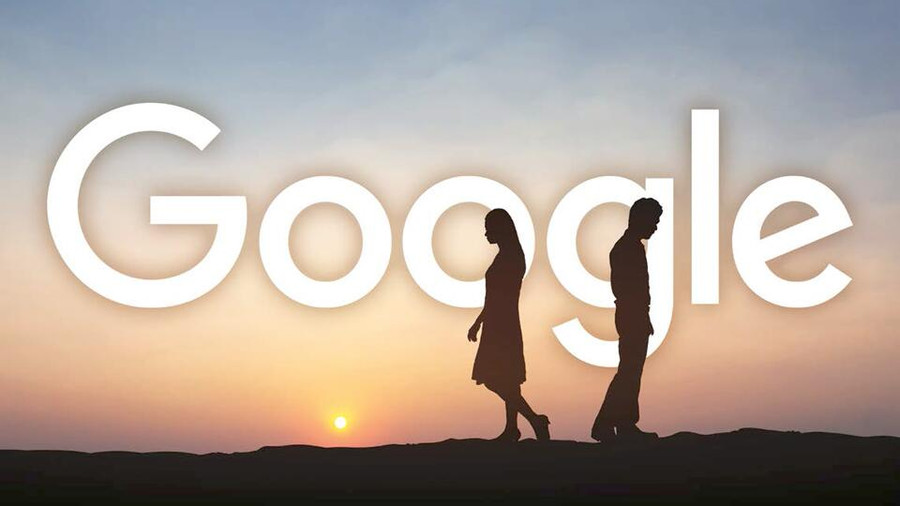Dear Google, you used to be cool. Now that you’re rich and banked your first year over $100 billion in revenue, you’ve changed.
We don’t know if we love you anymore.
As an independent advertising network, it’s very difficult to operate our company and decide what images violate or don’t violate Google’s guidelines because they vary from Google reviewer to reviewer. The whole process is entirely subjective and isn’t transparent at all.
Once upon a time, you sought out to index the entire internet and make it easy to find what people wanted. We all fell in love. You boosted good websites, focused on the relationships between websites and applauded websites with PageRank scores that informed publishers that they were doing good work. Your business flourished and expanded in the many years since then, and your stock price has grown tremendously in the years that have followed as well.
But you’ve changed. You no longer communicate or play well with others. You don’t cooperate with publishers and took away PageRank and made everything you do a secret. The lack of transparency allows for no accountability. The things that you make public are being spun as for the “common good” but the bottom line is — your decisions “for the common good” usually help your bottom line.
However, it’s not just our community that feels this way. The European Union (E.U.) recently fined you €2.4 billion for antitrust claims, and it would seem likely that the U.S. may follow suit at some point.
This isn’t a breakup letter in the traditional sense. We think its time you break up, with yourself. Don’t get me wrong, we still like you ... but we aren’t in love with you anymore. Maybe it’s time for some therapy before something big happens. To be clear, it’s not us it’s you. Just “Google” the speech by Professor Scott Holloway from NYU about how Amazon, Apple, Facebook and Google should be broken up. It’s a profound eye-opening 32 minutes.
The best indicator of future behavior is past behavior (thanks Dr. Phil) and things have been getting progressively more worrisome. Remember when you stopped adult keywords in AdWords? It clearly hurt adult advertisers, but we understand that adult is not the majority of your earnings, so this decision may have made financial sense — we understood. But now it keeps going further. In January, you started to implement your ad blocking in Chrome, and brought in “Better Ads Standards,” which directly benefits you and predominantly hurts publishers who don’t use Google ad services, while helping to stop certain advertising types that are not provided by Google. These decisions directly hurt not just independent adult publishers and advertising networks, but the entire ecosystem of companies who support them.
As an independent advertising network, it’s very difficult to operate our company and decide what images violate or don’t violate Google’s guidelines because they vary from Google reviewer to reviewer. The whole process is entirely subjective and isn’t transparent at all. The very nature of banner ads (often called “creatives”) means it’s very difficult to determine whose creativity crosses a line, and whose does not.
Apparently, flashing banners are the scourge of the Earth and must be removed at all costs. But, what determines if a banner is “flashing”? Are blinking ads OK? Is it OK if one element of a banner flashes or is it the whole ad flashing that determines a violation? If a blinking ad is fast enough to potentially cause an epileptic seizure, then maybe it shouldn’t be displayed on the web. Circling back to the whole issue at hand — since when are flashing banners more than just annoying, or a real threat to anyone, at all?
You are now getting reviewers to review every significant website on the internet, in an effort to detect (and stop) independent publishers from displaying advertisements that you do not approve of. So I will ask the question: do you really think it’s proper for Google (a company whose revenues are generated predominantly by advertising) to dictate terms, control and block third party advertising, the revenue of publishers and actively disable the basic functionality of websites, and the ads of competing advertising companies? This is all being done via your ownership and control of the Chrome browser, which is responsible for the majority of web-surfing experiences.
Answer carefully. The free internet and your company’s future may depend on it.
Juicy Jay is the CEO and founder of JuicyAds, the Sexy Advertising Network. You can follow Jay on Twitter @juicyads, visit JuicyAds.com or like on Facebook.com/juicyads.








